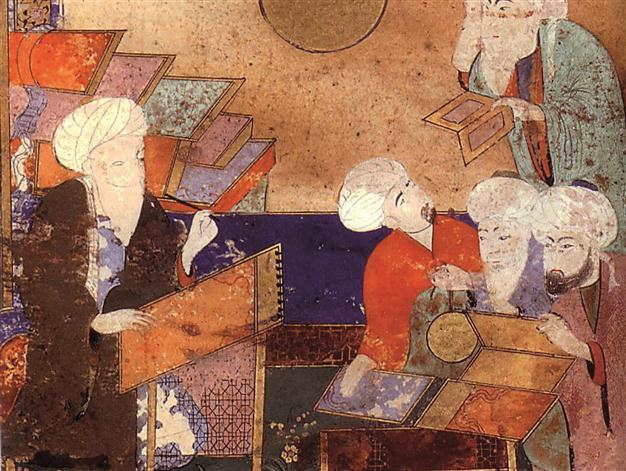Astrologers and the Ottoman
ISTANBUL - Hürriyet Daily News

Specific time-keepers calculated time-keeping for prayers and fasting on the basis of the moon’s movements.
No one knows the future, although a lot of people would like to. No one knows either when mankind first looked at the stars and thought they saw the future. There is general agreement that astronomy and astrology arose in the Middle East and passed through the ancient Greeks to the Romans. Where Islam is concerned, it was the Arabian Desert Bedouins who knew about the moon and stars. Later, their knowledge merged with that of the Greeks and Romans.Islam demands accurate time-keeping for prayers and fasting. Specific time-keepers calculated these times on the basis of the moon’s movements. From there, it was apparently an easy step to calculate the future. Astronomers became astrologers and made good money drawing horoscopes, especially if the predictions turned out to be true.
The Turks were no exception, and under the influence of Islam and their travels through the Middle East, they began to include astronomers in their courts. Traveling through Central Asia and Persia, they would undoubtedly have been influenced by the use of astronomers and astrologers.
Astrologers were firmly entrenched in Ottoman society by the time of Fatih Sultan Mehmed II in the mid-15th century. He is known to have observed moments declared auspicious by the astrologers. Seydi Ibrahim bin Seyyid was the first chief astrologer, appointed during Sultan Bayezid II’s reign (1481-1512). The position existed until its abolition in 1924.
Only the sultan could appoint the chief astrologer but not before the sheikh al-Islam’s approval. The chief astrologer had a deputy and a team of astronomers under him who would have received rigorous training in the medreses (religious schools) in Islamic theology and law, astronomy, geometry and astronomical tables and instruments before being appointed a time-keeper in one of the city’s mosques. Since there were no clocks during the first part of the Ottoman Empire, people relied on the time-keepers for prayer-times and the fasting schedule.
The chief astrologer was primarily responsible for establishing the lunar calendar for the year so everyone would know when Ramadan began, that is, when they needed to start fasting. He would also prepare horoscopes for the sultan and the high-ranking government officials. Another part of his job would be to forecast propitious moments for events such as weddings, declarations of war, births, circumcisions, the launching of ships, military campaigns and the appointment of the grand vizier.
Did the sultans believe in these horoscopes? We know some allowed astrologers to control all their activities. Some sultans like Abdul Hamid I and Selim III did not believe astrologers but could not eliminate the custom either.
Many members of the religious establishment were opposed to casting horoscopes in spite of their popularity among the people and the fact that the astrologers/astronomers were trained in the medreses. On one occasion the opponents succeeded. The sultan during chief astrologer Taqi al-Din’s time was angered by some of his astrologers’ predictions and in 1575 ordered al-Din’s observatory overlooking Tophane in Istanbul to be torn down. Admiral Kılıç Ali Paşa, whose mosque still stands below the old cannon foundry, carried out the order. Some believe this observatory, as well as those in Samarkand and Maragheh, influenced the observatories built by Johannes Kepler and Tycho Brahe in the West.
Where were the women in all this? They had their own ways of telling the future, by looking into a drinker’s coffee cup and the moon. But that’s another article.
















